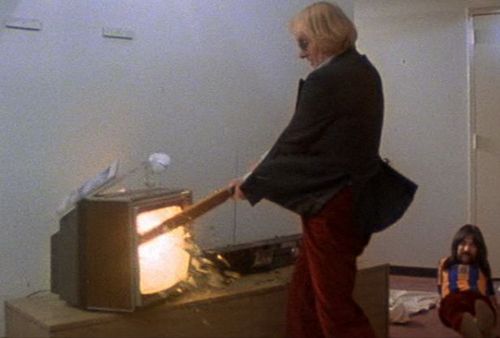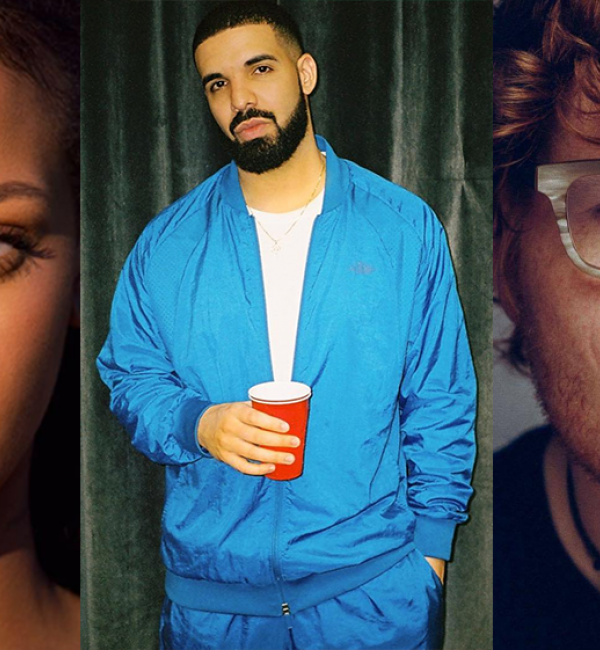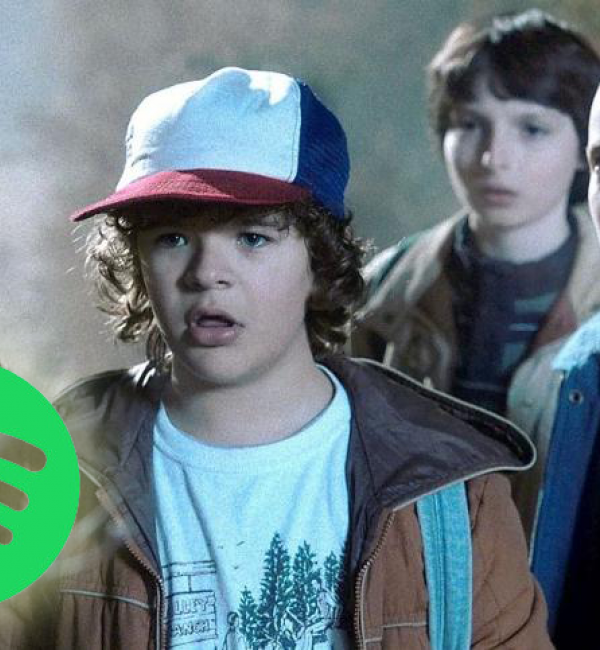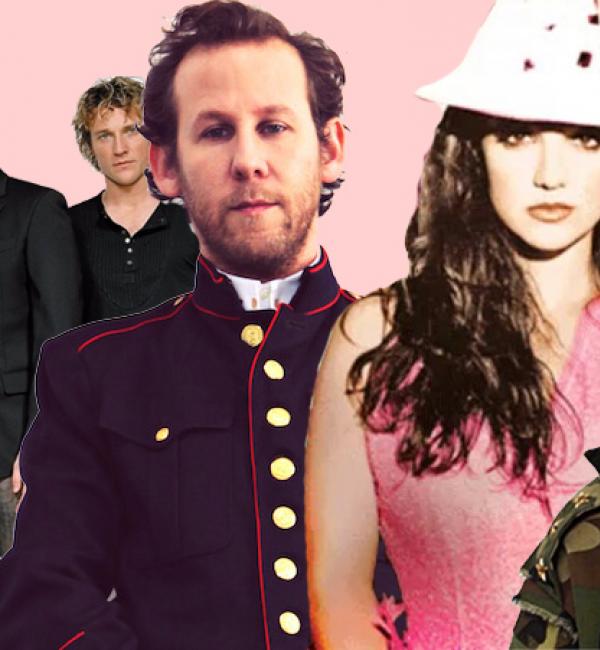
A few weeks ago we published Spotify head honcho Daniel (definitely not “the Man” and just an honest Swedish music loving entrepreneur trying to turn a crust) Ek’s reaction to Taylor Swift’s decision to take most or all her music off his service until she was paid properly.
Ek’s lucid and pleasant explanation was as lucid and pleasant as he is, and seemed (though we paraphrase) to amount to:
“Hey (imagine Swedish accent), we pay out large cheques for music and you should be happy because at least it’s some money, unlike people like Pirate Bay who don’t pay anything. And if you let us have plenty of free music we will get enough listeners/purchasers (?) who can’t live without us that they will pay and those big 12-inch cheques will become 12 foot ones like they give pools winners and hey ho”.
Which wasn’t a bad argument particularly when he said that he wasn’t in control with where that money went too after he’d paid it and that artists should look elsewhere for that chat.
All of which seemed fair and eloquent (if self-interested) but we couldn’t just let it rest there as it seemed like it might be a one-eyed take on life. So we looked around until we could find someone on the Artist team (a manager that is) with a point of view, and we thought we’d print their ideas for a bit of a comparison. And here it is ….
It’s not all anti-anyone, and certainly it dwells on Ek’s bright spots, but there are big differences too, and if you are seriously interested in the future of music it’s something you might want to enjoy, digest and comment on…
Streaming: One Manager’s Perspective
It seems like everyone has an extreme view about streaming services these days. To some people Spotify and co’ are saviours. To others? They’re Satan. But the situation is actually neither black nor white - it’s 100 shades of grey.
Let’s be clear about one thing from the outset… streaming services are here to stay. If the music biz learned anything from the Napster debacle it’s that “the customer is King”. Clearly many people now prefer to stream music (and films and TV shows) rather than fill their hard drives and bookshelves. Those customers simply have to be offered great streaming services. Now. The music biz can’t try to make them wait while we spend five years figuring out the perfect business model - we have to give the customer what they want while at the same time scrambling to turn it into a decent business for everyone concerned.
From the perspectives of artists and managers there are some undeniable negatives around current streaming arrangements. For starters, some major record companies are shareholders in various streaming services and that creates potential conflicts of interest. Their collective stake in Spotify alone is now notionally worth something like a billion dollars and none of that is likely to end up being shared with the artists whose music helped grow that equity. Plus many artists and managers are also understandably concerned about how steaming income is shared with their label - is it a “sale” or a “receipt” for royalty purposes? The distinction isn’t merely academic - if it’s a “sale” then you’ll typically earn about 20% but if it’s a “receipt” you’ll usually earn 50%.
There’s also an undeniable issue with fidelity. We can debate whether CD’s sound better than LP’s but MP3’s clearly don’t sound as good as either of them and streamed music usually sounds even worse.
The other downside is more abstract. Streaming - at least in its current forms - exacerbates the broader cultural drift toward ’trackification’. Today’s music fans are increasingly less likely to have lots of favourite artists but they have lots more favourite tracks. In a world of playlists you never need to know who sings your favourite songs. This helps lead to shorter careers plus lower ticket/T Shirt sales and none of that is good news for artists and managers.
But it’s not all bad news; far from it.
For starters, anyone who’s experienced streaming knows how magically it can enable music discovery. You’re now just one click away from hearing any tune recommended by a friend or a trusted media source. That’s powerful stuff. And it’s particularly good news for artists who’ve always been frustrated by the need to placate industry gatekeepers . If you’re creating remarkable music these days it can reach huge audiences without you having to kowtow to label exec’s or radio programmers.
There’s also evidence that streaming services are repatriating some former ‘file sharers’ - particularly when combined with government initiatives that discourage online piracy. Why bother with the hassles of warning letters and blocked websites? Now you can just download a slick app and still get your music for free providing you sit through a few ad’s. Of course, the money earned by artists and labels from ad’ supported streaming is currently minuscule but it’s arguably still better than making nothing - particularly when the alternative is allowing file sharing to further enrich search engines, ISP’s and other piracy enablers.
Most of all though there’s the enduring hope that streaming revenue can eventually outstrip CD and download revenue. This is based particularly on the Swedish experience. Spotify has already been operating there for 6 years so that market is theoretically a glimpse into our future. Streaming now constitutes over 80% of music revenue in Sweden and after a decade of shrinkage their industry has actually enjoyed double digit growth lately. Furthermore, that growth is based on a notionally more dependable income source … subscribers. Plus, piracy is now less than half what it was before Spotify came along.
So the main argument in favor of streaming can be summed up in three words; “hang in there”. Whether it turns out to be worth the wait outside of Scandinavia will depend on three simple - but as yet uncertain - variables:
1) Penetration. How many people will sign up to streaming services? As Spotify and Google Play become part of mobile phone bundles, the vast majority of people will have streaming app’s at their fingertips and that rapidly ramps up usage. Similarly, speculation is rife that Apple will bundle Beats with their next operating system when it’s released next year. Obviously that would massively increase penetration with just one click so there’s a lot of relatively easy and imminent upside in total user numbers.
2) Conversion. What percentage of these users is willing to actually pay for a streaming service? If you only convert 10% of users to a paid subscription then there just doesn’t seem to be enough money in the ad’ supported plays to make the whole exercise worthwhile for anyone. However, if you convert the majority of users to paying a monthly fee then you’re well on the way to grossing more money than was ever made from selling music in old fashioned ways. According to the company’s founder, Spotify currently converts about a quarter of its 50 million users. And based on European experiences, that critical percentage tends to creep up over time because the free version of the app is usually tweaked to gradually make it less appealing (eg: more ad’s get introduced).
3) Price. Once people are ‘hooked’ on a subscription service they may well be willing to pay $20 a month instead of $10 or $15. Somewhere out there is a magic price point where people feel they’re getting fair value for money AND the ‘cake’ is big enough for artists to start seeing ’slices’ that give them sustenance. Until the services are fully developed we simply don’t know when the price is right but if Scandinavia’s any guide, real prices do tend to edge up over the years without alienating many users.
Now let’s make some ‘back of envelope’ calculations based on these three variables. Firstly, let’s assume that global streaming penetration can reach 500 million people in a few more years - Spotify alone has reportedly gone from 30 million to 50 million users this year so 500 million doesn’t seem like a crazy number when you consider the early stages of US adoption and the number of other emerging players in the streaming space (Beats, Google Play, Deezer etc). Secondly let’s assume that a third of those 500 million 'streamers’ can be converted to ‘subscribers’. Let’s then assume that the average subscription price is US$12 a month. Notionally, the gross revenue from those subscribers alone would total something like US$24 billion. At the moment Spotify pays out over 70% of its revenue to copyright owners. Hopefully that split would improve at higher sales volumes but even if it stayed the same then all of these numbers would mean annual label/artist/songwriter earnings of $16.8 billion from subscription streaming alone. There would presumably be an extra few billion worth of ad’ supported revenues as well.
To put all that in context, in 2004 IFPI valued the global music business at US$33 billion. Nowadays they say it turns over less than US$15 billion a year. So IF all those assumptions above are correct - and, once again, they’re just really rough guesses! - then within a few years streaming could be generating a few billion dollars more per year than total downloads and physical sales generate for labels and artists right now. Even if downloads and physical sales are only worth a quarter of their current total by that time, that would still take total music biz earnings back above US$20 billion - i.e.: 33%+ above its current nominal value.
So The Great White Hope for Australian artists, labels and streaming services is a world of higher penetration, higher conversion and perhaps slightly higher price points and splits just like Sweden enjoys today. If/when that day arrives then there should be a big new revenue ‘pie’ that notionally restores growth to the recording industry. The optimists see this outcome as a 'sure thing’ and they therefore see Spotify and co’ as saviours. The pessimists aren’t convinced that the bigger ‘pie’ will ever eventuate. More fundamentally they typically believe that even if does eventuate, artists won’t get a fair 'slice’. That’s usually the main reason why they see Spotify and co’ as Satan.
Nonetheless we have to listen to our customers and that means we have to genuinely try to make streaming work. Greater transparency from all concerned should help reduce the current artist backlash which is doing real damage to streaming companies. Allowing artists to ‘opt out’ of the free versions of these apps would also be a good start toward healthier relationships. That would keep Taylor Swift happy for starters and it might just help boost conversion rates by more than it compromises penetration rates. Streaming services are always asking everyone else to embrace different ways of doing business - surely they should be willing to do the same?
Streaming services should also be doing more to allow fans to engage with the artists and not just with the tracks. Obviously the vast majority of streaming plays will not require biographical info and tour dates at your fingertips …. BUT … occasionally you might hear a song you really love. You might wonder who’s behind that special song. If, at that critical moment your streaming app provided lots more optional artist info at your fingertips then I think fans would appreciate that added benefit. Such extra features would benefit artists too. For example, if a song gets 10,000 streams then the artist probably earns roughly $30 from that (assuming 75% are ad’ supported). However if just one of those 10,000 streams makes someone intrigued enough to 'click through’ and buy a T-shirt or a concert ticket then the artist stands to make about the same amount from that one fan as they do from the 9,999 other fans combined. Obviously investing in artist oriented features of this sort wouldn’t solve all of streaming’s problems but it would be a step in the right direction. After all, everyone in the recording industry has turned a blind eye to poor payments from radio stations for decades because they felt that ticket/CD/T-Shirt sales would make up for it. Streaming services could mitigate some of their current royalty and PR problems by offering ‘in kind’ benefits to artists which also enhance the customer experience. Everyone would win.
Which brings us to a final point about streaming services - happiness is always a function of expectations and results. So your ‘happiness’ with your streaming royalty cheque depends largely on what you ‘expect’ streaming royalties to look like. If you expect them to look like download or CD royalties then you’re bound to be disappointed. On average a single stream will probably earn an artist roughly a hundred times less than a single download. At the other extreme, if your song is heard once on the radio by a million people then the station will pay the artist a lot less than a streaming service would pay for exposing your song to exactly the same number of people. So if you only expect your streaming royalty to look like your PPCA royalty then you’ll probably be really happy when the Spotify cheque arrives. Of course reality lies somewhere in the middle. A stream is much more than a radio play because it’s typically a more deliberate act of music consumption. However, a stream is less significant than a download - you can’t keep it, just for starters. The appropriate expectations for streaming royalties should therefore lie somewhere between those two poles.
At the moment there’s no question that streaming falls well short of most artist and manager expectations. However, as all the discussion above has hopefully explained, there’s actually a very real possibility that streaming will; reduce piracy, enhance music discovery and help turn around a decade of shrinking revenues in the music business. In the meantime artists and their advocates need to push hard for greater accounting transparency, better fidelity and more opportunity for deeper fan/artist engagement. If those efforts fail then the pessimists may well be proved right. Meanwhile the Swedish experience suggests that there are actually very good grounds for optimism but for the time being anybody who says there’s a certain outcome here is either a liar or a fool.





